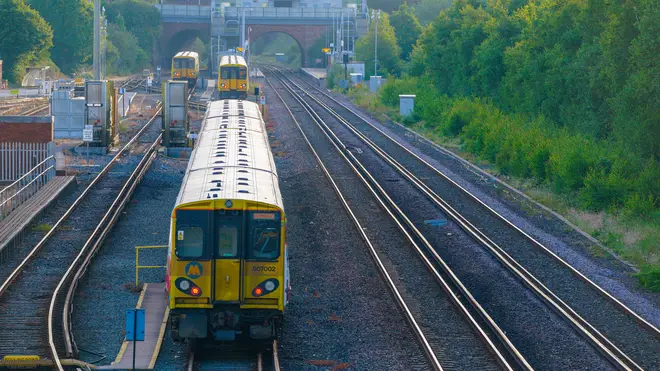
Ian Payne 4am - 7am
17 August 2022, 09:04

The Department for Transport announced on Monday that the 2023 increase in regulated fares in England will be below the inflation measurement.
The inflation figure usually used to determine annual increases in some train fares has risen to its highest in nearly 40 years.
The Office for National Statistics data showed July’s Retail Prices Index (RPI) inflation was 12.3%, up from 11.8% the previous month and the highest since January 1982.
July’s RPI figure is traditionally used by the UK, Scottish and Welsh Governments to set the cap on the following year’s increase in regulated train fares, which include most season tickets on commuter routes.
But the Department for Transport announced on Monday that the 2023 increase in regulated fares in England will be below the inflation measurement.
Wales usually makes similar fare changes to England, while the Scottish Government has not announced its plan for 2023.
Rises in unregulated fares on Britain’s railways are set by operators.
Fares in Northern Ireland are set by operator Translink, which does not use RPI.
Paul Tuohy, chief executive of Campaign for Better Transport, said: “Even a minus RPI rail fare rise next year will hit passengers hard and could mean people stay away from the trains altogether.
“The Government must go further and commit to a fare freeze for 2023 now so that commuters are not left with the uncertainly of whether they’ll be able to afford to get to work next year.”
Chris Page, who chairs pressure group Railfuture, said: “The Government claims that the fare rise will be below inflation, but the devil will be in the detail.
“They won’t say what the increase will be, or which fares it will apply to.
“If the Government was serious about tackling the cost-of-living crisis it would make rail travel much more affordable and make it easier for people to use cars and planes less.
“Germany has shown the way with its nine euro (£7.58) travelcard offer.
“It proves that if the price is right, people will flock to the trains.”
Smoke & Mirrors: Our view of the leak on Rail Fare Increases for 2023, made in advance of tomorrow's release of the July RPI figure (expected to be around 12%); we give some tests to judge the actual increase when it is announced.
Read on at https://t.co/Q2ViFlHSEY ^NM pic.twitter.com/naVRdYM3Yx
— Railfuture (@Railfuture) August 16, 2022
Passengers are braced for more rail strikes on Thursday and Saturday, with only around a fifth of Britain’s train services operating and just half of lines open.
Thousands of members of the Rail, Maritime and Transport union, Transport Salaried Staffs’ Association and Unite at Network Rail and 14 train companies will strike in the long-running row over pay, jobs and conditions.
Analysis of Office of Rail and Road data by the PA news agency published on Tuesday found that industrial disputes, severe weather and coronavirus-related staff sickness caused the worst year for train reliability in Britain since records began.
The cancellations score in the 12 months to July 23 was 3.6%, which is the highest figure in records dating back to 2015.